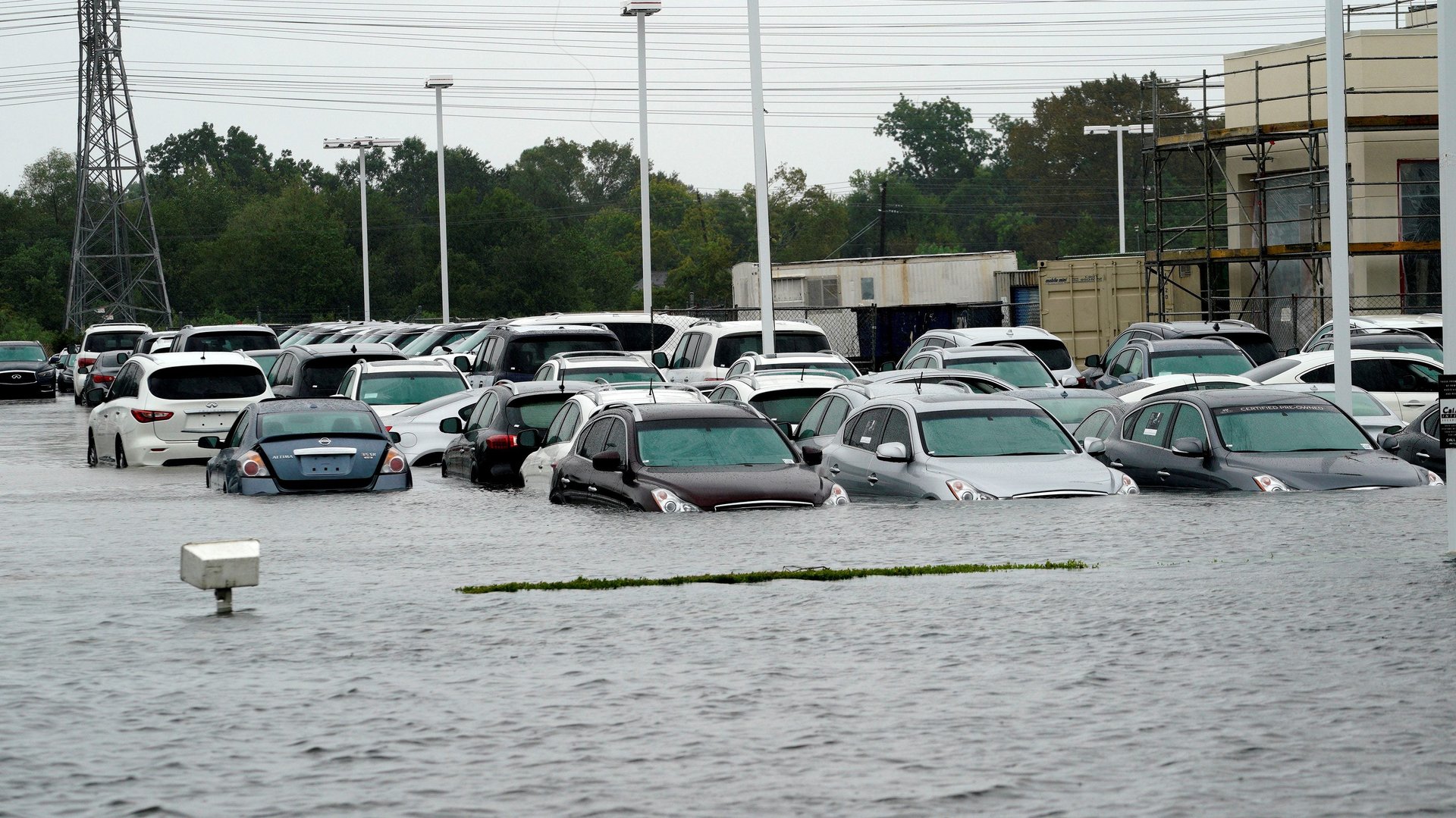Hurricane Harvey’s costs “may blow Katrina out of the water,” according to the government’s lead expert
While the rain continues to fall in Texas and Louisiana, analysts are scrambling to work out how much the damage done by Hurricane Harvey will cost. The US government won’t be releasing an exact estimate for a month but its lead expert says it looks like it will easily pass the $160 billion cost (in combined private sector and government spending) of Hurricane Katrina in 2005.


While the rain continues to fall in Texas and Louisiana, analysts are scrambling to work out how much the damage done by Hurricane Harvey will cost. The US government won’t be releasing an exact estimate for a month but its lead expert says it looks like it will easily pass the $160 billion cost (in combined private sector and government spending) of Hurricane Katrina in 2005.
“Each day that passes, as impacts multiply, it seems more likely that Harvey will eclipse the cost of Katrina…. It might not even be close—it may blow Katrina out of the water,” said Adam Smith, lead researcher for the US Billion-Dollar Weather and Climate Disasters program at the National Centers for Environmental Information. Asked about predictions that Harvey will cost more than Katrina and 2012’s Hurricane Sandy combined, Smith cautioned that it’s too early to give any real precision, but said, “It’s possible—I won’t say plausible, but I would say possible.”
The government is aiming to publish its initial estimate on Oct. 6, and Smith said to expect any early federal funding estimates to keep rising in the coming months. “With Sandy in particular, there were two or three or maybe four different rounds of federal government funding…it started with $7 billion or $8 billion, and ended up being north of $50 billion,” he said.
Disaster-cost estimates can vary enormously, especially in the early days. Right now, AccuWeather thinks Harvey will end up costing $190 billion; an analyst at Imperial Capital investment bank put it at $100 billion; and Bernard Weinstein, an economist at Dallas’s Southern Methodist University, gave Quartz a ballpark figure of around around $60 billion or $70 billion, based on his research on Katrina and 2005’s Hurricane Rita.
What do these estimates cover?
The government estimates cover both insured and uninsured losses (while private sector figures sometimes only count the insured) and take into account the costs of interruption to local businesses, but not healthcare expenses. Nor do they estimate the indirect costs to the US economy—for example, the ripple effect that shutting down America’s biggest oil refinery will have across the country. Those indirect costs are likely to be big. CitiBank has calculated that just one week of economic activity stoppage in the area hit by Harvey could shave 0.2% to 0.3% off national economic growth in Q3.
“In modern times this is an unprecedented event from an economic point of view, because you’ve got a major metropolitan area—Houston is the fourth largest US city by population—and major industry having to grind to a halt,” Smith said. “There are tremendous costs just to stop an industry, and that has subsequent effects on other industries having to feed into and out of them.”